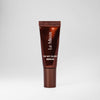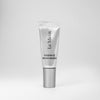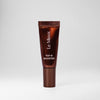One of the exciting things about the beauty industry is that it constantly evolves as unusual ingredients, new products, and fascinating techniques for rejuvenating the face are discovered and shared. The increasing popularity of trends from other countries has revolutionized what happens in our own salons. What makes the beauty industry even more wonderful is the "surprise factor" of many of these trends! Here are some of the most striking and attention-grabbing techniques, products, and ingredients whose popularity originated in the East and are infiltrating spas in the West.
Touching Techniques
1. Double cleansing
The magic words for the latest trends in Korean beauty are "chok chok," translated as "glowing, moist, flawless." In K-Beauty, ideal skin has a glass-like quality, described as "mul-kwang-pi-bu," or "watery glow," which refers to a plumped, luminous, dewy glow. What's the first step in achieving it? Double cleansing, with a surprising new twist.
The problem starts with the fact that there are over 19,500,000 skin cells per square inch of skin, resembling tiny marshmallows squished together. In the crevices between them, remnants of heavy foundation, BB, CC, and DD creams cannot be completely removed by gentle cleansers. The result? The potential to develop milia or tiny white bumps under the skin that may never go away.
The solution? K-Beauty starts the beauty regimen with double cleansing. First, an oil-based or micellar water-based cleanser is used for dry, normal, combination, or sensitive skin to lift off dirt and makeup. A cream-based cleanser can be used for oily or sensitive skin. Second, a gel-based cleanser leaves skin clear and hydrated, without stripping away natural oils essential to maintain a healthy skin barrier.
Wait--there's more! Take double cleansing to the next level with the latest trend: Korean beauty experts start the process at the arms, then down to the hands in order to cleanse daily grime and bacteria that have accumulated during the day, before they even touch the face. Who would have thought cleansing the face starts at the elbows?
2. Korean face-lifting
In Korea, a "v-line" face with a defined jawline and chin is considered ideal, so massage techniques focus on facial resculpting as an alternative to cosmetic surgery. Skin is stimulated along acupuncture pressure points. Firm pressure is used to massage under cheekbones, toward temples, down facial contours, along the bridge of the nose to forehead, and down the sides of face and neck. Care should be taken to avoid vigorous, tugging pressure, which might cause sagging.
This procedure doesn't limit itself to the face massage—working with shoulder and neck areas is key to achieving a lifted look and luminous glow. After the massage, a sheet mask is applied, then skin is saturated with a serum containing vitamins, peptides, stem cells, and growth factors.
3. Fascia-firming Meridian Massage
This version of facial resculpting focuses on superficial fascia, which is the connective tissue located right underneath skin, and prominent at the temples, cheeks, chin, nose, and infraorbital area (beneath eye sockets). Wrinkles and creases in fascia are smoothed out during this massage by using smooth strokes along Meridian lines.
Techniques include rolling and pressing along jawline and neck to lift and sculpt facial contours, firm sagging skin, and improve circulation. Using the thumb and forefinger to perform slight pinching movements along eyebrows reduces the look of drooping eyelids and puffiness while brightening eye areas.
Fascia-firming Meridian massage incorporates the best of Eastern traditional Meridian theory as well as Western circulatory, muscular, and lymphatic systems, which helps increase microcirculation, ease chronic inflammation, and relieve muscle tension. As an added bonus, the experience of being touched releases oxytocin and endorphins to reduce stress and increase feelings of overall well-being. Like Korean face-lifting, fascia-firming Meridian massage includes applying a sheet mask as well as layering multiple products containing vitamins, peptides, stem cells, and growth factors. Jade tools can also be incorporated into the massage to smooth and sculpt fascia.
Peculiar Yet Popular Products
1. Bubble masks
Due to the obsession with Korean beauty, masks come in an infinite variety of choices, ranging from splashed-on liquid to painted-on mud. One popular version is the bubble mask, with activated bubbles that introduce micronized ingredients into the skin. The sensation is unique—like tiny champagne bubbles tickling skin as they oxygenate skin cells. Bubble masks provide a sensorial quality that is exciting for clients, who rarely have experienced anything like it. It’s a great surprise during a facial: clients feel a playful tickling, an unusual effervescent "crackle, pop" sensation. Bubble masks are a fun and effective way to hydrate and oxygenate skin, and even provide a brightening effect.
2. Paint-on masks
The darling of selfies, paint-on masks are a DIY dream come true. Usually found in treatment rooms, charcoal masks and clay masks are ideal for unclogging and tightening pores, exfoliating and clarifying acne-prone skin, and soothing irritated, inflamed skin. Still, a quick Google search turns up multitudes of images and videos of DIY paint-on masks, showing the obsession with masks dotted with the contents of de-gunked pores, as well as the morbid fascination with stubborn masks requiring painful removal. With trending paint-on masks, beauty and entertainment finally meet.
3. Biofermented skin care
Fermentation is usually thought of in connection to medicinal herbs, food, and gut health, such as taking tea and converting it into kombucha, taking milk and converting it into kefir, or cabbage into kimchi. Fermentation occurs due to the chemical reaction of specific enzymes that break down complex compounds into simpler particles, so they become more compatible with skin and are absorbed more easily. The bacteria present in fermented products feed on sugar and starch, and produce lactic acid, vitamins, omega fatty acids, amino acids, and antioxidants—all superfoods for healthy skin.
Fermented ingredients are trending in anti-aging skin care because they increase the potency of vitamins, antioxidants, peptides, and proteins, all working in tandem to help skin regenerate itself. Plus, fermented products have been reported to help reduce skin sensitivity, redness, and acne breakouts. Studies have shown that fermented red ginseng has a greater concentration of antioxidants and is highly effective for brightening, improving circulation, reducing toxins, and even reducing fine lines and wrinkles. Saccharomyces copper ferment, zinc ferment, and manganese ferment allow skin-loving minerals to help promote collagen synthesis, enhance tissue repair, and reduce signs of environmental damage, such as wrinkles, sagging, and hyperpigmentation.
Innovative and Interesting Ingredients
1. Artichoke extract
How did an ugly, spiny vegetable become a beauty trend? Artichoke extract is the darling of Korean essences, which may look like toners but provide skin with active ingredients normally found in serums. Artichoke extract contains an army of skin-loving minerals like copper and manganese as well as B vitamins. It is also packed with antioxidants including ferulic acid, zeaxanthin, and the master antioxidant glutathione, which help neutralize free radicals and protect skin cells from oxidative stress. This natural active ingredient is also known for improving cell density, which helps improve skin firmness, reduce enlarged pores, and minimize the appearance of lines and wrinkles.
2. Jellyfish extract
These creatures are usually avoided at all costs, but now jellyfish are receiving a closer look for their skin care benefits. A certain type of jellyfish, "turritopsis nutricula," has been dubbed "the immortal jellyfish," since it goes through multiple life cycles, actually reversing the aging process. Can this secret to regeneration be extended to skin care products?
Scientists extract jellyfish collagen for use in skin care formulations to hydrate and to activate collagen synthesis, helping skin cells act young again. However, as this ingredient trend spreads across the globe, there's no need to worry about depleting the ocean's supply of jellyfish. In fact, the United Nations Food and Agriculture Organization has encouraged the beauty industry to include jellyfish extract in more formulations, since the ever-expanding jellyfish population feeds on fish larvae and young fish, which reduces the already shrinking fish stock.
3. Tree sap
Different varieties of tree sap are another natural ingredient staple in Asian skin care. Makes sense, since sap is the nutrient-rich lifeblood of a tree, constantly helping it produce new growth. Prized in skin care for antioxidant and anti-inflammatory properties, tree sap consists of smaller molecules that are easily absorbed by skin, quickly delivering vitamins, minerals, antioxidants, and amino acids to hydrate and renew skin cells. White birch sap's high levels of vitamins B and C improve skin tone and help prevent hyperpigmentation; bamboo sap is commonly used to help with cell proliferation to keep fine lines and wrinkles at bay; dragon's blood sap is used to improve texture and firmness, and maple sap deeply hydrates and leaves a fresh, dewy glow, while protecting against UV damage.
Global Beauty, Unlimited
These unusual and often surprising techniques, products, and ingredients are inspiring professionals to offer more creative and exciting spa menus, and are also delighting clients who seek not only youthful beauty, but fun and memorable experiences. Isn't that what living life to the fullest is all about?
###
Skin Inc. November 2017
Founder and CEO of Le Mieux Cosmetics and PurErb Herbology-based Skincare & Aromatherapy, Janel Luu has over 35 years experience in the beauty industry as an educator, researcher, and formulator. She has taught over 37,000 skincare professionals and physicians on topics ranging from anti-aging cellular technology to centuries-old Meridian techniques.
 Skip to content
Skip to content




